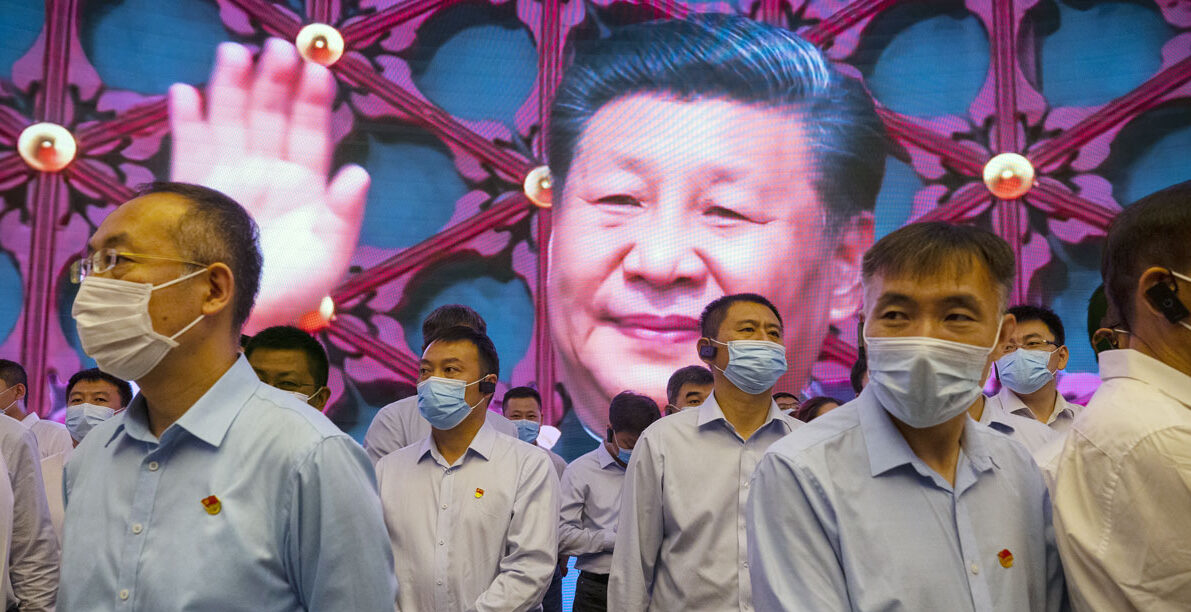China is a country of contradictions. It is a one-party state that classifies itself as a “people’s democracy”. It boasts of 5000 years of historical continuity and yet has had two revolutions in the last 100 years alone. It is also the world’s second richest nation while self-identifying as “under-developed”. Just this week, Chinese Premier Li Qiang spoke at the World Economic Forum to insist that China should be seen as “the world’s largest developing country”.
This is an odd boast, you might think, given that one of President Xi Jinping’s key targets was to ensure that, by 2049 (the centenary of the founding of the People’s Republic), it would be a “fully developed, rich, and powerful” nation. In fact, there is no official definition of a developing economy, and it is often left to the state itself to decide. But surely it is better to achieve riches and development sooner rather than later?
China’s GDP is still growing at 5% per annum — an indicator of developed status — and according to the World Bank that figure is set to grow to 5.6% this year, in line with that of the US economy. The growth figures mask the fact that China’s per capita income is a mere $12,500 per annum (admittedly 40 times greater than it was 30 years ago), compared to America’s $70,250. In terms of average income, today China is where America was in 1980. A remarkable rise even though its purchasing power is currently only one-third that of the US.
But with the Chinese Communist Party’s strict lockdown only ending in late December 2022, China is a little less blasé about its economic rise than it used to be. While its GDP is bouncing back slowly, youth unemployment is at a startling 22%, as businesses battle with soaring costs and demands for higher wages. On top of this, America is pressuring international businesses not to collude with China, and foreign investors have become more wary.
The knock-on effects of a generalised productive slowdown in the country are undermining Xi’s rallying call that the rejuvenation of the Chinese economy should come from domestic household expenditure. Unsurprisingly, having seen that the state can literally lock people in their homes at a moment’s notice, many ordinary Chinese are saving, not spending, especially on big ticket items and certainly not in the parlous property market. Reports suggest that household cash savings were 27% up on this time last year.
The Chinese economic miracle of the last 15 years or so has relied on major infrastructure spending to massage its GDP figures. But nowadays, as the demand for steel and concrete lessens (due to the housing crisis, the industrial slowdown, and the pressures of international environmental agreements), China is having to backtrack a little. That said, the state is still firing up some of its old coal-fired power stations and building new to provide energy security and reduce prices in the post-Covid/Ukraine war era in order to quell fears of unemployment.
Underlying these economic difficulties is the tension between the private and state sector in China. After years of capitalist experimentation, in the immediate pre-Covid period the pro-state old guard were back in the ascendant. But now Xi realises that — with reports of a $23 trillion nationwide debt crisis looming — there is a need to roll out the innovators once more. The President’s latest State-Owned Enterprise (SOE) Reform package, for example, aims to strike a balance between supporting the state-sector — even to the point of propping up zombie industries — while allowing privately owned outliers to flourish.
Now that private investors know they can be disciplined for flying too high, liberalisation might not inspire the kind of ground-breaking growth in the economy that Xi hopes for. This is the ultimate contradiction in Chinese economic practice. However, if China teaches us anything it is that it always seems to resolve the irresolvable. But for how much longer?











Join the discussion
Join like minded readers that support our journalism by becoming a paid subscriber
To join the discussion in the comments, become a paid subscriber.
Join like minded readers that support our journalism, read unlimited articles and enjoy other subscriber-only benefits.
Subscribe